
Experiential Learning | Research & Innovation | Community Impact | Career Preparation | Teaching Excellence | 21st Century Liberal Arts | Building Community | Good Vibes | CAS Spotlights | All Stories | Past Issues
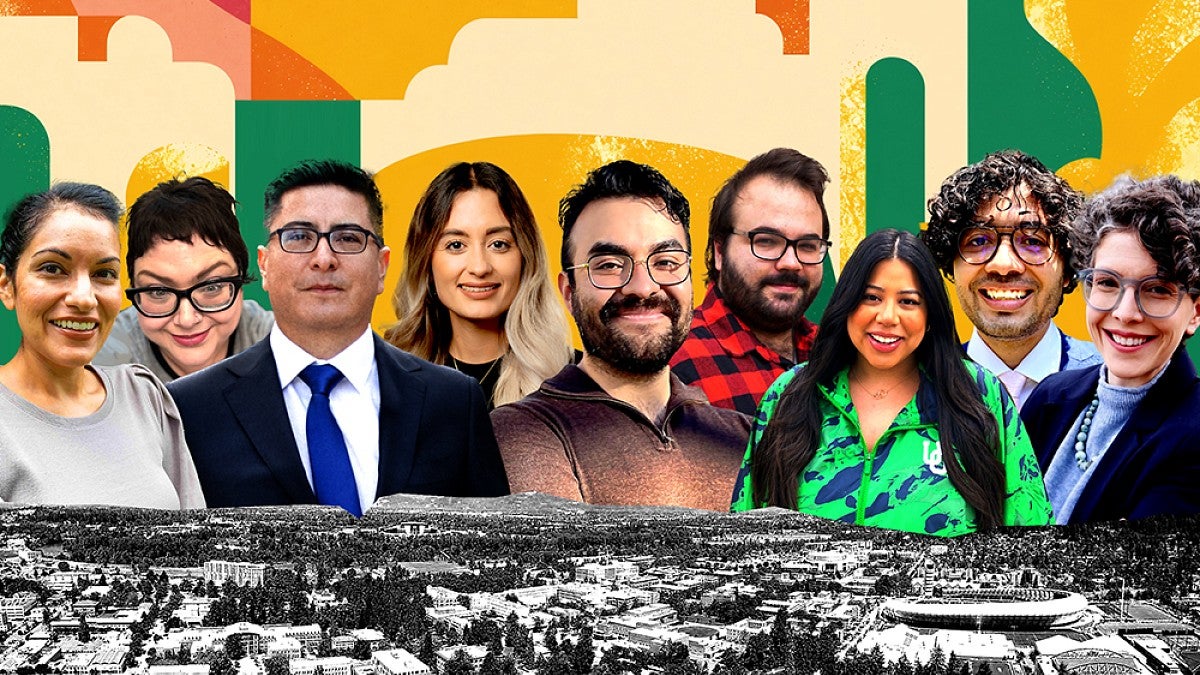
September 27, 2024
Meet Your New Latinx Studies Professors
This academic year, nine tenure-track faculty members are joining the College of Arts and Sciences, in what is a comprehensive investment in the college’s Latinx studies-related course offerings, in several departments across the college's three divisions. In addition to offering courses for a growing minor program, the new faculty hires will mentor CAS undergraduate and graduate students. Creating a culture where every member of the CAS community—especially those from traditionally underrepresented populations—feels connected and supported is a cornerstone of the college's new strategy.
Hiring the new faculty members as a cluster hire is a proven, effective hiring strategy to recruit and retain underrepresented faculty, said Laura Pulido, Collins Chair in the Department of Indigenous, Race and Ethnic Studies and a professor in the Department of Geography.
“The cluster hire will significantly enhance the UO’s profile in Latinx Studies, which we know our students our very interested in,” she said.
Below, meet the nine faculty members who are joining the College of Arts and Sciences and learn more about their research and how Latinx studies can support a 21st-century liberal arts degree.
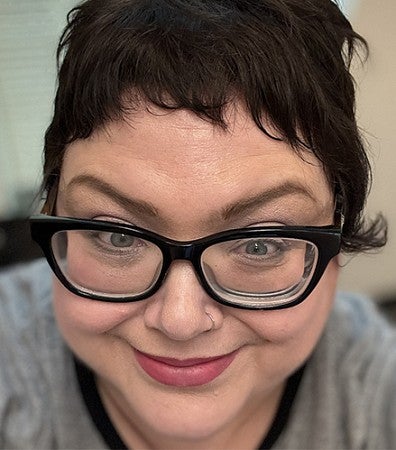
Bernadette Calafell, Indigenous, race and ethnic studies
Bernadette Calafell, who is coming to CAS from Gonzaga University in Washington, looks to popular culture and mass media when teaching about Latinx studies. But that doesn’t mean her classes are just going to be movie marathons.
“What I’m trying to teach students is how to be critical consumers of media,” Calafell says. “You’re going to get some kind of critical intercultural skills to think about how to take what you're learning not only to be concise, critical consumers of culture, and pop culture, but you apply that in your everyday interactions with people.”
Favorite food: “I am Mexican, so I love all Mexican food even though I don’t live in the Southwest anymore. But I’m like a Teenage Mutant Ninja Turtle: I love pizza, especially barbecue chicken pizza.”
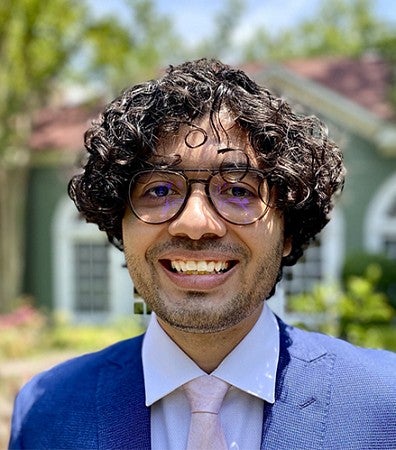
Salvador Herrera, English
After wrapping up a PhD studies at University of California, Los Angeles, in spring, Salvador Herrera comes to CAS with expertise in contemporary border literature and performance art.
“I am particularly interested in avant-garde and speculative aesthetics that defamiliarize everyday social relations and imagine a world beyond national borders,” he says. “Specifically, I draw from Chicana feminism and queer and trans* of color critique to elucidate how these artists rupture the nation’s unconscious and rethink the limits of the human body.”
Favorite food: Jíbaritos. “Unique to diasporic Puerto Ricans in Chicago, it consists of steak, onion, cheese, lettuce, tomato and aioli sandwiched between two fried plantains. I would invite everyone to try one in Humboldt Park, but I am afraid you might ruin the neighborhood.”
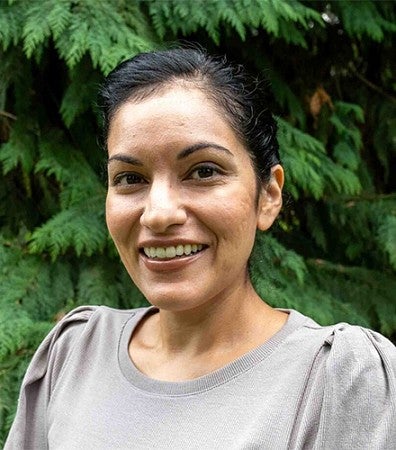
Arifa Raza, Indigenous, race, and ethnic studies
Arifa Raza's career as an immigration lawyer specializing in deportation defense for asylum seekers and representing detained individuals led her to finish her PhD from University of California, Riverside in 2018.
“I am currently completing my book project which details how immigration protections for migrant children reinforce border enforcement measures,” she says. “I am also working on a pilot project exploring the challenges human trafficking survivors from racially minoritized communities face in obtaining legal protections.”
Desert island book: “Other than academic books, the majority of my reading consists of books on cats and fairytales I read with my six-year-old daughter. Among those, I enjoy the Whatever After series by Sarah Malinowski, which are modern spins on fairy tales.”
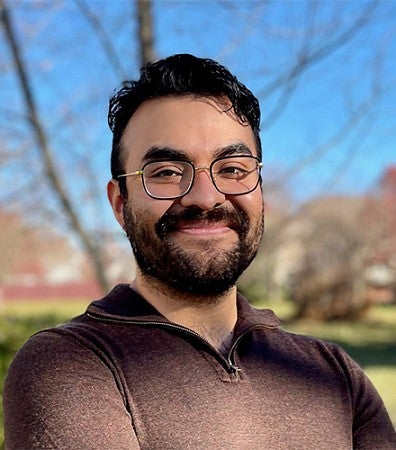
Ramón Resendiz, Anthropology
Coming from New York University, Ramón Resendiz investigates the relationship between historical institutions, visual culture, and documentary media in the process of imaging the history and citizenship of Latinx and Indigenous Peoples in the US. He has a one-year postdoc at Indiana University and joins CAS in fall 2025.
“I was raised by my aunt, who is a criminal sociologist and Chicana feminist. She, along with my family, instilled a wholehearted belief in me of the radical power of education to make a better world,” he says.
Favorite food: Any home-cooked meal. “I recall how my grandmothers would cook all the time, routinely for upwards of 10 people at times. As I’ve gotten older, I finally understand the amount of labor and time it takes to feed someone.”
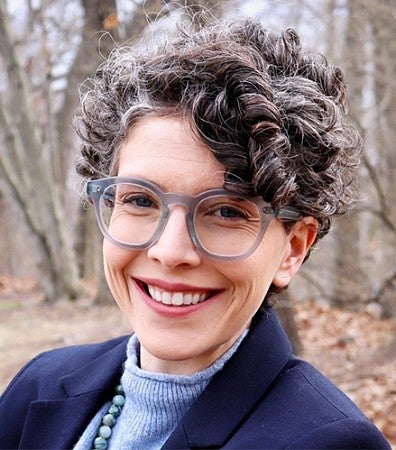
Naomi Sussman, History
With a focus on pre-1848 northern Mexican borderlands, Naomi Sussman, who has just finished postdoc research at University of California, Los Angeles, brings an expertise in Indigenous histories of California the US Southwest, and northern Mexico.
“I focus on the sovereign relationships between Native peoples, and then how those peoples positioned themselves in relation to colonial states,” Sussman says. “I’m also interested in thinking about Indigenous people within the Latiné diaspora, and thinking about Indigenous migrations from Mexico and Central America into an Indigenous California interior over this long period.”
Desert island book: Either Nnedi Okorafor's Akata Witch or N.K. Jemisin's The Obelisk Gate. “There's a lot of material in the Broken Earth Trilogy to chew over, but Akata Witch is both interesting and, for me, the ultimate comfort read.”
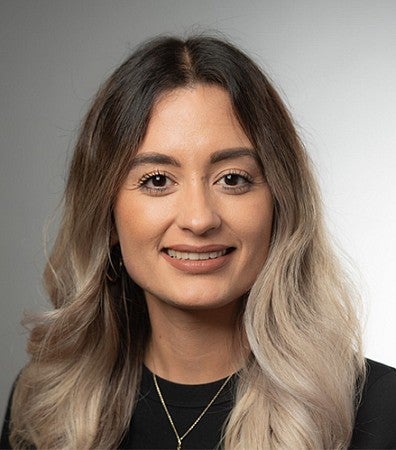
Isabel García Valdivia, Sociology
Isabel García Valdivia’s postdoctoral research at Brown University focused on continuing to study Latinx/e immigrants and their families’ experiences. In addition to teaching, she’s now working on a book manuscript and scholarly articles based on 102 interviews with documented and undocumented older Mexican immigrants, who remain in the US and those who return to Mexico to “retire.”
“Across my solo work, I have used qualitative methods to understand two broad research questions,” says García Valdivia, whose work primarily focuses on Latinx/e communities. “One, how do immigrants’ experiences change across the life course; and two, how does legal status impact families?”
Desert island book: “In my free time, you will find me learning a new skill, completing do-it-yourself projects, or making travel plans. If I were on a desert island, I would bring a how-to-book (probably something like How to Survive on a Desert Island).”
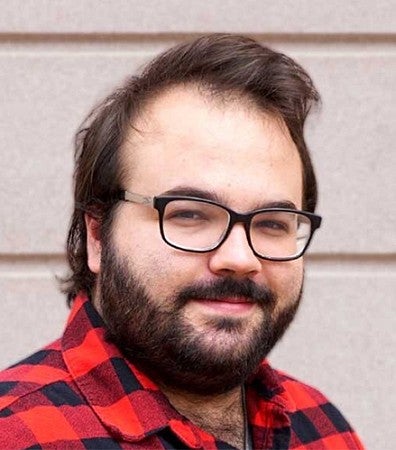
Guillem Belmar Viernes, Linguistics
After working as a foreign language teacher in Catalonia, Guillem Belmar Viernes was inspired by language revitalization efforts to pursue a PhD at University of California, Santa Barbara, where he has worked with the Indigenous Mixtec diaspora in California on language documentation and social justice efforts.
"Linguistics is a study of language, and you can study it from any perspective and any subfield, Belmar says. “Everyone uses language, and everyone is somewhat interested in language."
Desert island book: "What I would take to a desert island is A Broken Mirror by Catalan author Mercè Rodoreda, which follows a family in Barcelona through different generations."
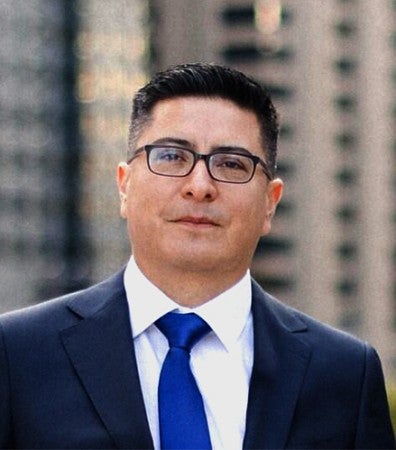
Byron Villacis, Sociology
Byron Villacis worked alongside prominent economists and politicians in Ecuador before returning to academia to study corruption as a social issue, the role of the US dollar and global institutions in the Global South, and how LGBTQ populations are quantified in official statistics.
“I motivate students to think critically about the construction of knowledge, how various disciplines approach problem-solving from different perspectives, and how historical and cultural contexts influence our understanding of accepted ideas,” he says.
Favorite food: Encebollado, from Ecuador (fresh tuna meat, cassava root, tomatoes, onions, coriander, and various spices)
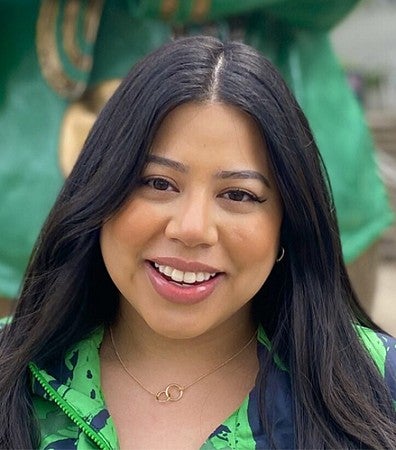
Blanche Wright, Psychology
The US academic system only has about 2% of Latinx professors in psychology. Blanche Wright wants to change that by inspiring Latinx students in the classroom and through mentorship to hopefully become professors.
“I'm really motivated because I want to create an inclusive and supportive space as a mentor for minoritized students within this ivory tower, but also as an instructor,” Wright says. “And I think that representation is super important.”
Desert island book: It’s kind of sad and deep but Solito by Javier Zamora. It's a memoir about Javier, who immigrated from El Salvador when he was young, by himself, without his parents. And it has personal significance because I'm also Salvadorian.
